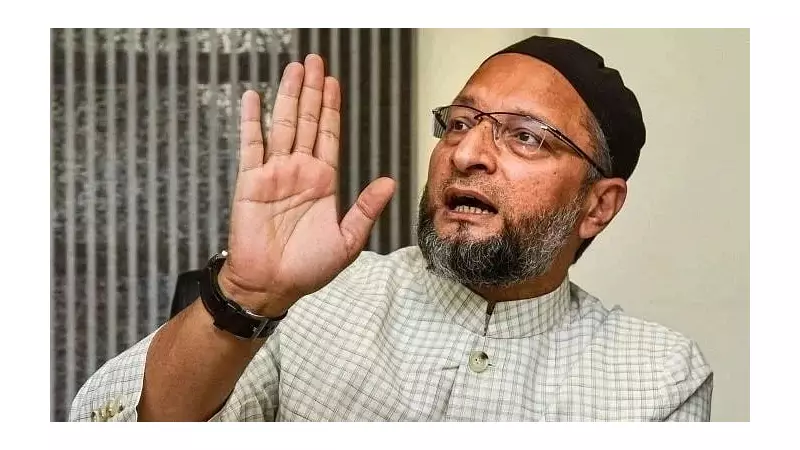
In a fiery response to mounting political accusations, All India Majlis-e-Ittehadul Muslimeen (AIMIM) chief Asaduddin Owaisi has categorically denied allegations that his party aims to split Muslim votes in the crucial Bihar assembly elections scheduled for 2025.
'The charge is completely wrong,' Owaisi declared, pushing back against critics who claim his party's presence in the electoral fray could fragment the Muslim vote and indirectly benefit the ruling National Democratic Alliance (NDA).
Political Storm Brews in Bihar
The controversy erupted as political parties began positioning themselves for the high-stakes Bihar elections. Opposition leaders, particularly from the Mahagathbandhan (Grand Alliance), have expressed concerns that AIMIM's entry into specific constituencies could divide opposition votes along religious lines.
Owaisi, however, remains defiant in his stance. 'We are not here to divide votes; we are here to represent the voices that have been systematically ignored by traditional political parties,' the Hyderabad MP asserted during his interaction with reporters.
Historical Context of Vote-Split Allegations
This isn't the first time AIMIM has faced such accusations. The party has previously been accused of playing the 'vote-splitter' role in several state elections:
- 2020 Bihar Assembly Elections
- 2021 West Bengal Assembly Polls
- Various Uttar Pradesh by-elections
Despite these persistent claims, Owaisi maintains that his party provides a legitimate political alternative to marginalized communities, particularly Muslims who feel underrepresented in mainstream politics.
Strategic Implications for 2025 Elections
Political analysts suggest that AIMIM's strategy in Bihar could significantly impact election dynamics in several ways:
- Potential realignment of Muslim voting patterns
- Increased competition in Muslim-dominated constituencies
- Possible reshaping of alliance mathematics
- Impact on broader opposition unity efforts
The Bihar electoral landscape has traditionally been dominated by caste-based politics, but the increasing focus on religious voting blocs adds a new dimension to the upcoming contest.
Owaisi's Counter-Narrative
Rather than accepting the 'vote-splitter' label, Owaisi has positioned his party as championing genuine representation. 'Why should Muslim voters be taken for granted by any particular party?' he questioned, arguing that democracy inherently requires multiple choices for voters.
The AIMIM leader emphasized that his party's agenda extends beyond religious identity politics, focusing on development issues, employment opportunities, and educational empowerment for all marginalized communities in Bihar.
As the political temperature rises in Bihar, this controversy underscores the complex interplay of caste, religion, and regional politics that will likely define the 2025 assembly elections. With Owaisi digging in his heels and opposition parties growing increasingly vocal, the stage is set for a fiercely contested battle that could reshape Bihar's political future.






